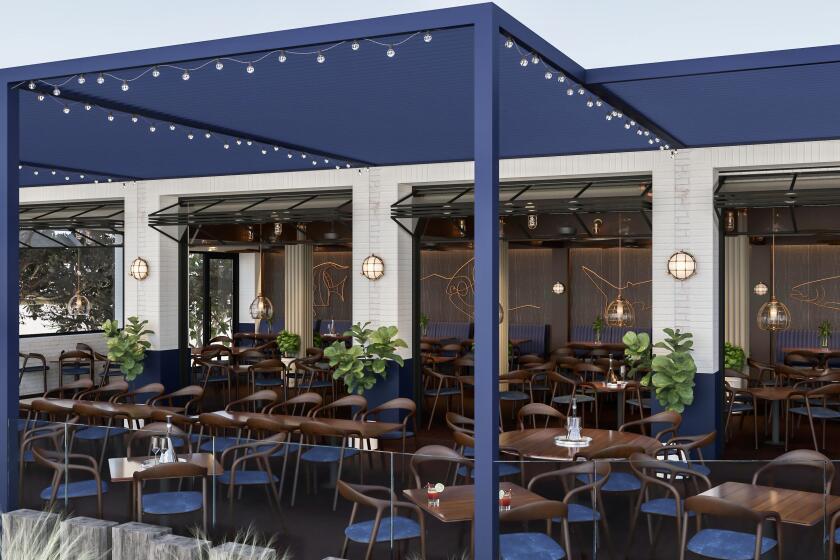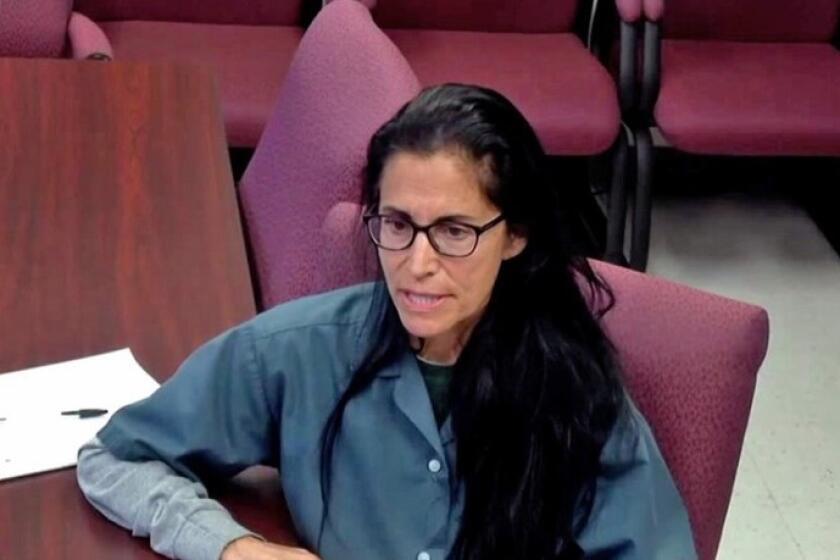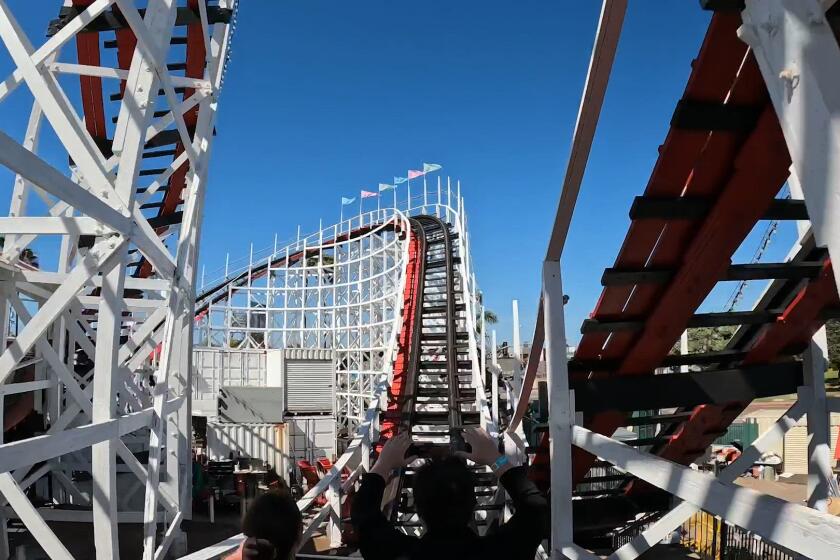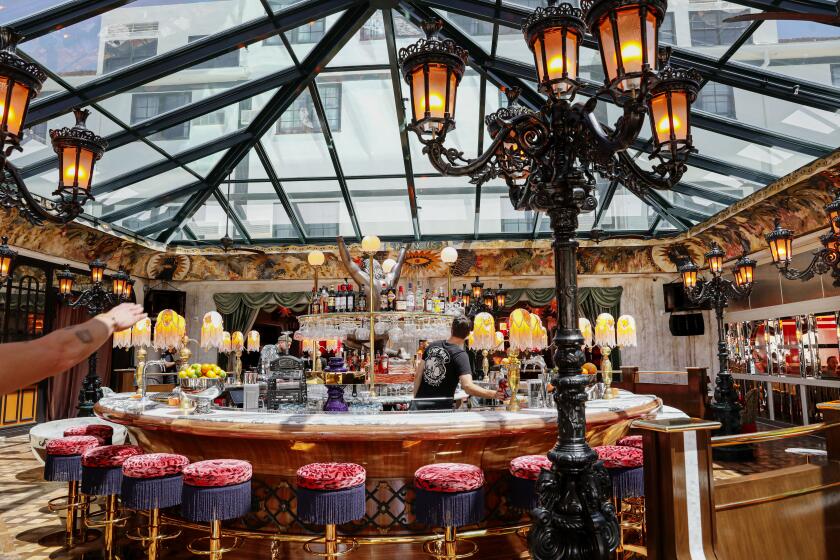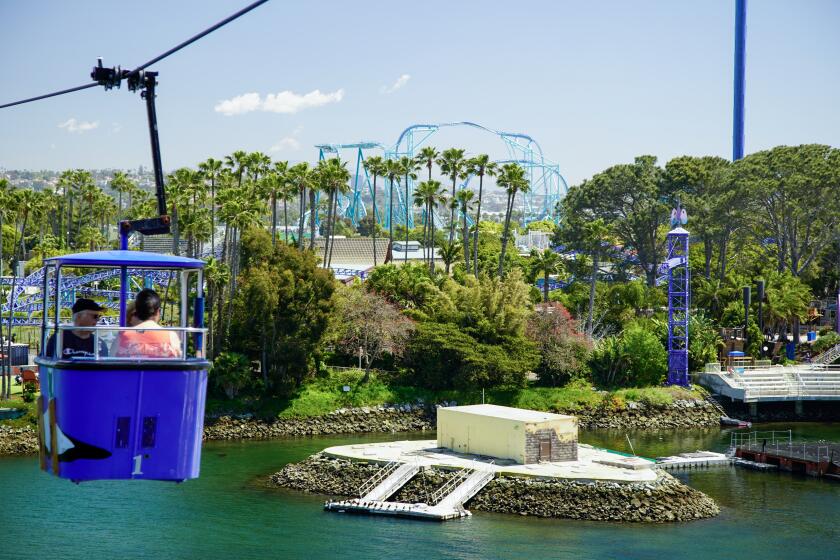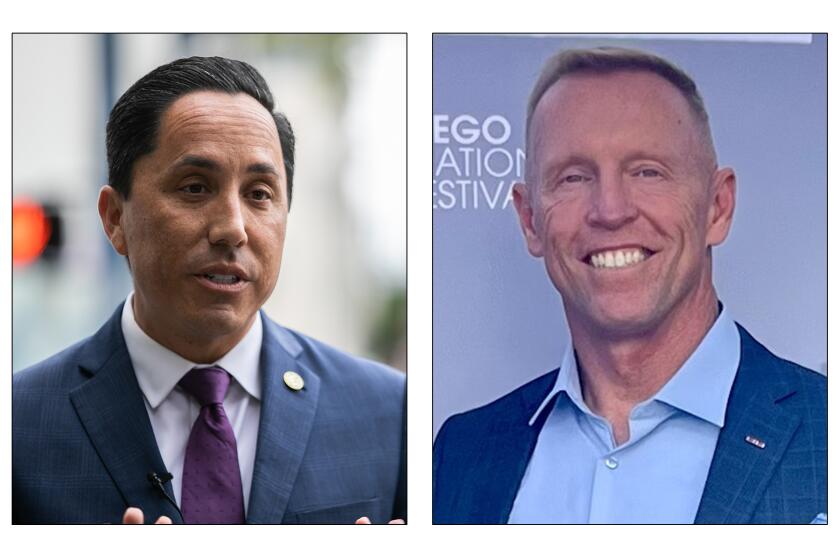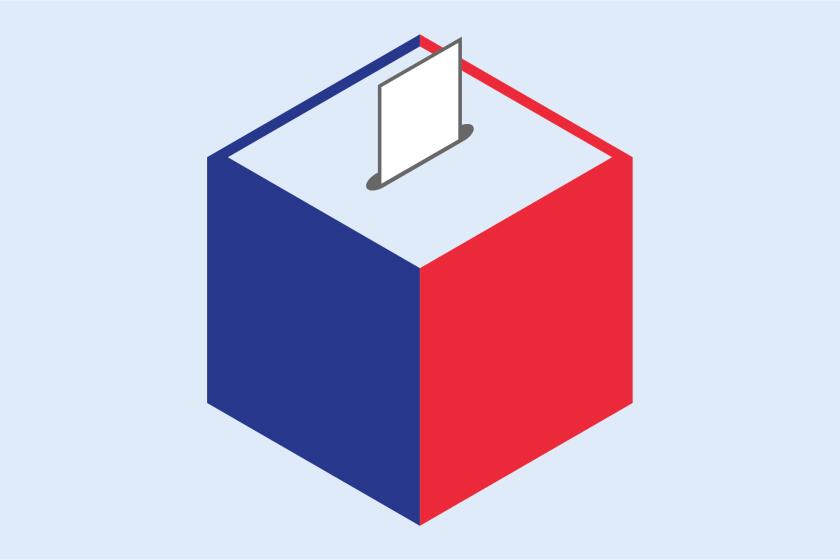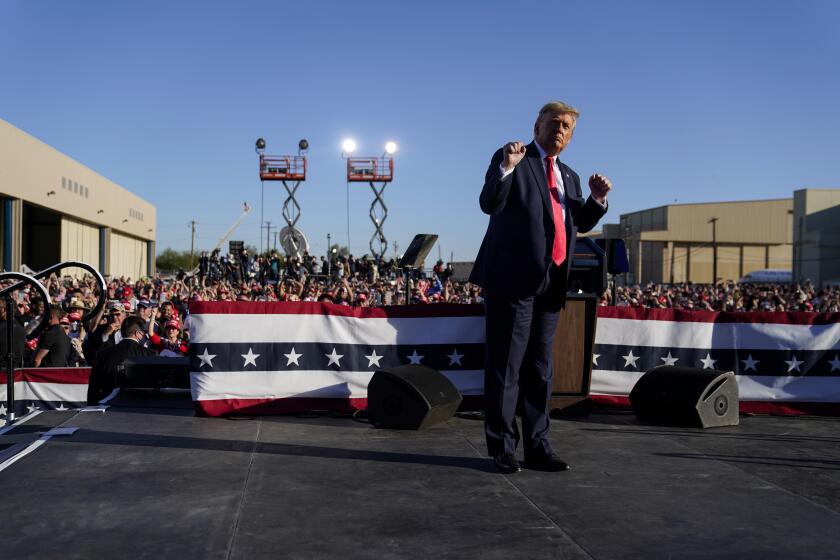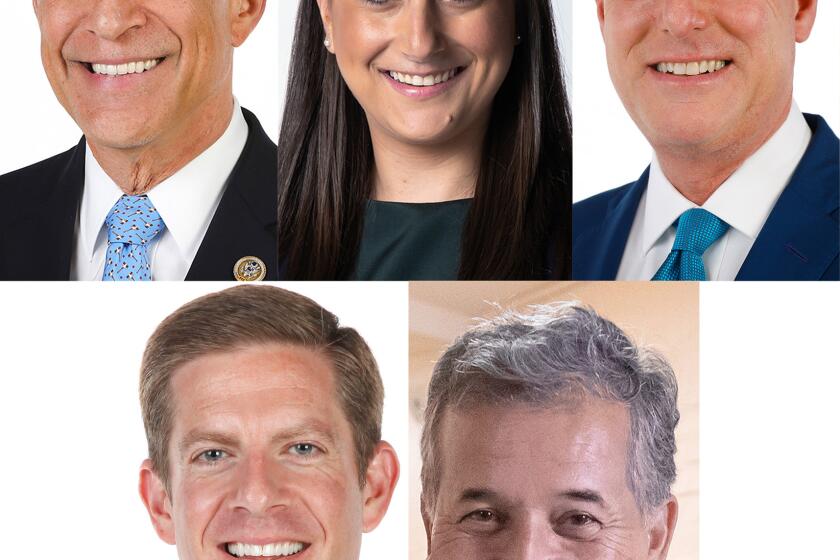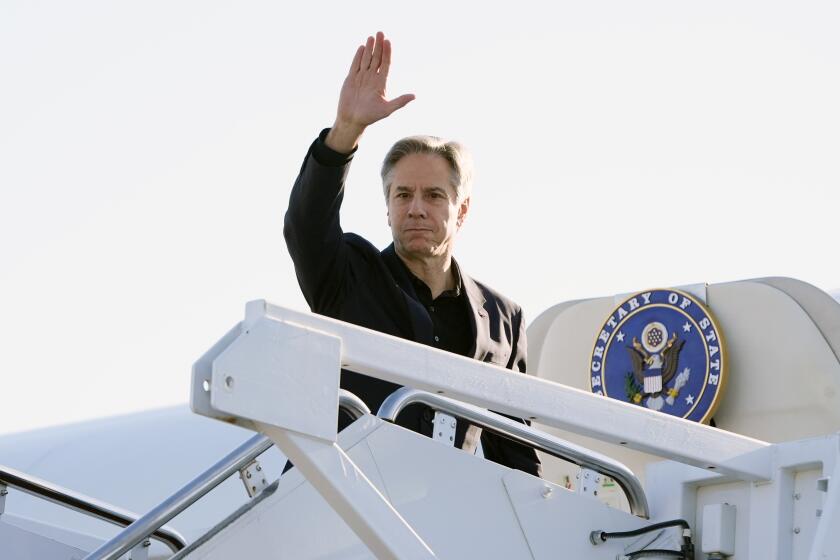Mayoral debate focuses on economic issues
Three top mayoral contenders revealed distinct — albeit predictable — differences on key economic and development issues Friday in the first debate of the campaign to replace former Mayor Bob Filner.
City Council members David Alvarez and Kevin Faulconer, along with former City Attorney Michael Aguirre, sparred in largely cordial exchanges that focused mainly on business issues facing the city.
Qualcomm executive Nathan Fletcher, a former state assemblyman, didn’t attend the debate — hosted by the Asian Business Association of San Diego and co-sponsored by U-T San Diego — because of an undisclosed scheduling conflict.
While none of the candidates specifically referred to the sexual harassment scandal that resulted in Filner’s resignation Aug. 30, each portrayed himself as a mayor who would be inclusive and run a transparent administration — the antithesis of how they suggested Filner operated. Faulconer on a couple of occasions used the debate to highlight the damage he said was wrought during Filner’s short time in office.
The candidates largely stuck to themes they’ve been using early in the campaign for the Nov. 19 special election.
Alvarez, a Democrat serving his first term on the council, highlighted his humble upbringing as the first person in his family to go to college and said he’s long been a champion of the downtrodden. He said he’ll put helping neighborhoods ahead of big downtown projects like a new Chargers stadium, which has been proposed for East Village.
Special mayoral election
- How Faulconer won it
- Faulconer brings city to familiar ground
- Map: How each precinct voted for mayor
- Faulconer win has lessons for state GOP
- Faulconer wins mayor’s race
- Editorial: A new mayor for San Diego
Final election results, complete coverage
“I will tell you one thing: I’ve stood up before, sometimes by myself, as the only one voting against a power grab and special interest money being taken from neighborhoods to build downtown projects,” he said.
Faulconer, a Republican, pointed to the work he’s done on the City Council to fix city finances after a pension scandal led to the resignation of ex-Mayor Dick Murphy.
“I was elected seven years ago after the last mayoral resignation left the city reeling.” Faulconer said. “And ever since that time I’ve focused my energy and efforts on the council on restoring our city finances and bringing credibility back to City Hall. But unfortunately … Bob Filner put a halt to that.”
Aguirre, a Democrat whose combative tenure as city attorney ended with him getting voted out of office in 2008, told the crowd of 120 business leaders that he built a successful legal career by working with others and that the city needs that type of leadership right now.
“I see in this room many of the solutions to the problems we face in San Diego and those solutions have to do with bringing us all together behind a vision of what this great city can be,” he said. “We will accomplish our greatness, we will achieve our vision, if we can bring all of our ethnic diversity to bear.”
The debate, held at the Westin Gaslamp Quarter hotel, featured questions from a panel of representatives from business organizations, including CONNECT, the Sportfishing Association of California, the National Latina Business Women’s Association and the Asian Business Association.
A question about California’s new minimum wage increase brought expected responses.
Alvarez supports the increase, noting that wages have not kept pace with inflation. Aguirre also supports the channge, but said more must be done for low-wage workers besides raising pay, like reducing the burden of “oppressive electricity prices.” Faulconer is opposed, saying he feared the new legislation will stifle the entry-level jobs he says are a vehicle for career enhancement.
The same split surfaced when questions arose concerning support for living wage and prevailing wage policies and project labor agreements that generally result in union-level wages and benefits for construction projects. A project labor agreement is currently in place for the proposed convention center expansion, negotiated between organized labor and the project contractor.
The expansion, scheduled to go before the California Coastal Commission next month, recently has become a lightening rod for debate about a competing multipurpose football stadium and convention facility proposed by the Chargers.
Likely one of the biggest dilemmas facing the next mayor will be what to do about the Chargers’ decade-long quest to build a new stadium.
Both Faulconer and Alvarez reiterated their support for the expansion while taking care to not alienate the Chargers.
“We’re a big city. We can do a convention center expansion and also entertain the idea of a Chargers stadium,” said Faulconer. “ …As mayor I’ll work with them, and I’m confident that by doing that we can develop a plan, and the hallmark of that plan will be, can we do a plan that protects San Diego taxpayers. I believe we can.”
Alvarez as well emphasized that a stadium cannot come at the expense of taxpayers’ needs but said he’s interested in exploring options.
“I definitely believe we can figure out a solution to keeping them in our city…,” Alvarez said. “What that is and the proposal the Chargers put forward is not detailed enough to be able to say this is the way to move forward.”
Aguirre, however, took a different approach, raising the issue of a public vote. Financing for the waterfront expansion relies on a hotelier-approved room tax that is currently the subject of litigation.
“I don’t think you can separate the downtown convention center from the proposal to have a Chargers stadium, and I intend to appoint a citizens committee to review both the proposals,” Aguirre said. “I like the idea that the Chargers are willing to submit their proposal to the voters… and I think we probably have to do the same thing for the convention center.”
One of the biggest criticisms of the Filner administration was the lack of openness and transparency. Filner refused to provide even the most basic information to the public, and each of the three candidates said that would change vastly at City Hall under their stewardship.
Aguirre reminded the audience that the state constitution and city charter were amended in 2004 to give “each of you free access to the information you need to make informed decisions in your direct democracy.”
City residents today, Faulconer said, can feel confident that increasingly, the local data they need is being put online with much greater regularity than in the past. And for members of the news media, he said he’s asked the city to do an audit of the process for responding to public records requests.
Alvarez cited the endorsement he received from former City Councilwoman Donna Frye, “the one light throughout the darkness of almost the last decade of city government when business was being done behind closed doors,” he said. “She was always at the forefront of making sure that information was available to the public. …You’ve got to be transparent, you’ve got to be forthcoming with people.”
Although 40 people had filed an intent to run for mayor, the Asian Business Association made a decision to limit Friday’s debate to only those who had previously held public office. A 5 p.m. deadline had been set for candidates to pay a $500 filing fee and submit signatures from registered city voters to quality for the ballot. By the deadline, 19 individuals had filed the required paperwork. City Clerk Liz Maland said it could take until Wednesday to verify the signatures and determine the final list of candidates on the ballot.
Get Essential San Diego, weekday mornings
Get top headlines from the Union-Tribune in your inbox weekday mornings, including top news, local, sports, business, entertainment and opinion.
You may occasionally receive promotional content from the San Diego Union-Tribune.

